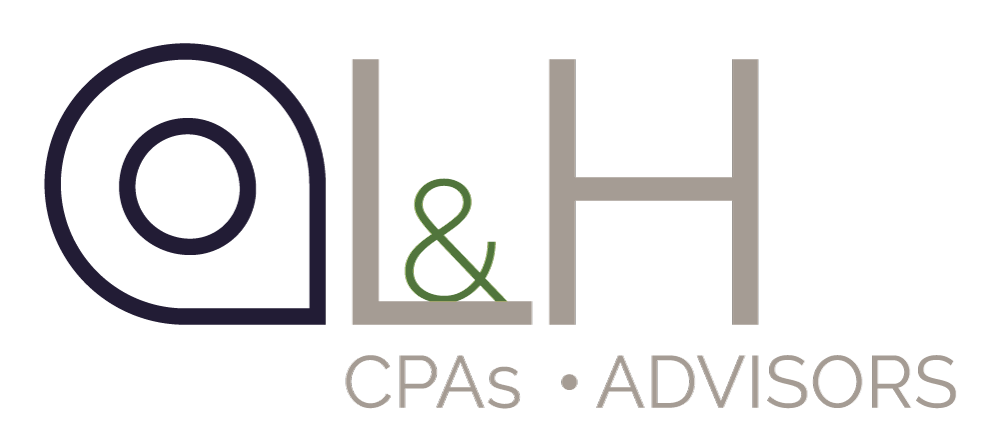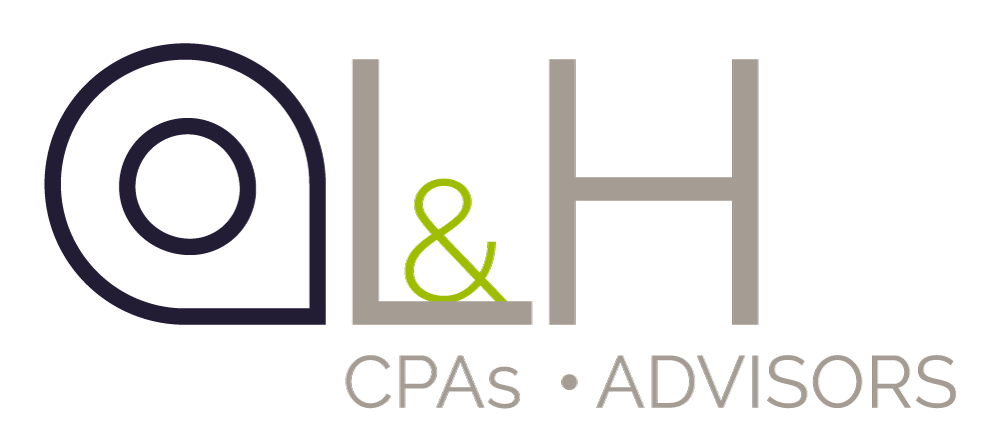L&H Corporate Transparency Act Updates
To help you understand the implications of the recent Corporate Transparency Act, we have prepared a selection of frequently asked questions.*
*However, it is imperative to stress that the content provided below is for informational purposes only and should not be interpreted as legal advice.
To ensure you are fully compliant and adequately prepared for the changes set to take effect in 2024, you may need to consult with your legal counsel to assess your unique situation and receive the guidance you need to navigate the CTA effectively.
-
You may file directly on your own for free with the Financial Crimes Enforcement Network at https://www.fincen.gov/boi
-
We have partnered with CorpNet, who can assist you with your filing at https://www.corpnet.com. You can contact CorpNet's representative directly should you need any assistance - Misty Hendricks, Dedicated Account Manager, Toll-Free: 888-449-2638 x 294 | Direct: 805-476-4713 x 294
Corporate Transparency Act FAQ
-
What Is The Corporate Transparency Act?
The CTA is a statute enacted in 2021 that requires the disclosure of the beneficial ownership information (otherwise known as “BOI”) of certain entities, that is, the people who own or control a company. The BOI reporting requirement intends to help U.S. law enforcement combat money laundering, the financing of terrorism and other illicit activity.
The CTA is not a part of the tax code. Rather, it is a part of the Bank Secrecy Act, a set of federal laws that require record-keeping and report filing on certain types of financial transactions. Under the CTA, BOI reports will not be filed with the IRS, but with the Financial Crimes Enforcement Network (FinCEN), another agency of the Department of Treasury. -
What Entities Are Required To Comply With The CTA’s BOI Reporting Requirement?
Entities organized both in the U.S. and outside the U.S. may be subject to the CTA’s reporting requirements. Domestic companies required to report include corporations, limited liability companies (LLCs) or any similar entity created by the filing of a document with a secretary of state or any similar office under the law of a state or Indian tribe.
Domestic entities that are not created by the filing of a document with a secretary of state or similar office are not required to report under the CTA.
Foreign companies required to report under the CTA include corporations, LLCs or any similar entity that is formed under the law of a foreign country and registered to do business in any state or tribal jurisdiction by filing a document with a secretary of state or any similar office. -
Are There Any Exemptions From The Filing Requirements?
There are 23 categories of exemptions. Included in the exemptions list are publicly traded companies, banks and credit unions, securities brokers/dealers, public accounting firms, tax- exempt entities and certain inactive entities, among others. Please note these are not blanket exemptions and many of these entities are already heavily regulated by the government and thus already disclose their BOI to a government authority.
In addition, certain “large operating entities” are exempt from filing. To qualify for this exemption, a company must:
a) Employ more than 20 people in the U.S.;
b) Have reported gross revenue (or sales) of over $5M on the prior year’s tax return; and
c) Be physically present in the U.S. -
Who Is A Beneficial Owner?
Any individual who, directly or indirectly;
· Exercises “substantial control” over a reporting company, or
· Owns or controls at least 25 percent of the ownership interests of a reporting company
An individual has substantial control of a reporting company if he or she directs, determines or exercises substantial influence over important decisions of the reporting company. This includes any senior officers of the reporting company, regardless of formal title or if they have no ownership interest in the reporting company.
The detailed CTA regulations define the terms "substantial control" and "ownership interest" further. -
When Must Companies File?
There are different filing timeframes depending on when an entity is registered/formed or if there is a change to the beneficial owner’s information.
· New entities created or registered after 12/31/2023 must file within 90 days
· Existing entities created or registered before 1/1/2024 must file by 1/1/2025
· Reporting companies that have changes to previously reported information or discover inaccuracies in previously filed reports must file within 30 days -
What Sort Of Information Is Required To Be Reported?
Companies must report the following information: full name of the reporting company, any trade name or doing business as (DBA) name, business address, state or Tribal jurisdiction of formation, and an IRS taxpayer identification number (TIN).
Additionally, information on the beneficial owners of the entity and for newly created entities, the company applicants of the entity is required. This information includes — name, birthdate, address, and unique identifying number and issuing jurisdiction from an acceptable identification document (e.g., a driver’s license or passport) and an image of such document. -
Are There Penalties For Not Complying?
Penalties for willfully not complying with the BOI reporting requirement can result in civil penalties of $500 per day and criminal penalties of up to $10,000 and up to two years of jail time.
-
Where Can I File?
• You may file directly on your own for free with the Financial Crimes Enforcement Network at https://www.fincen.gov/boi
• We have partnered with CorpNet, who can assist you with your filing at https://www.corpnet.com. They are offering a 10% discount if you file through them. You can contact CorpNet's representative directly should you need any assistance - Misty Hendricks, Dedicated Account Manager, Toll-Free: 888-449-2638 x 294 | Direct: 805-476-4713 x 294
• You may wish to utilize other third-party services but keep in mind that many fraudulent entities will be offering these services to obtain your confidential information, so please be diligent and cautious when choosing a third party to file through.



